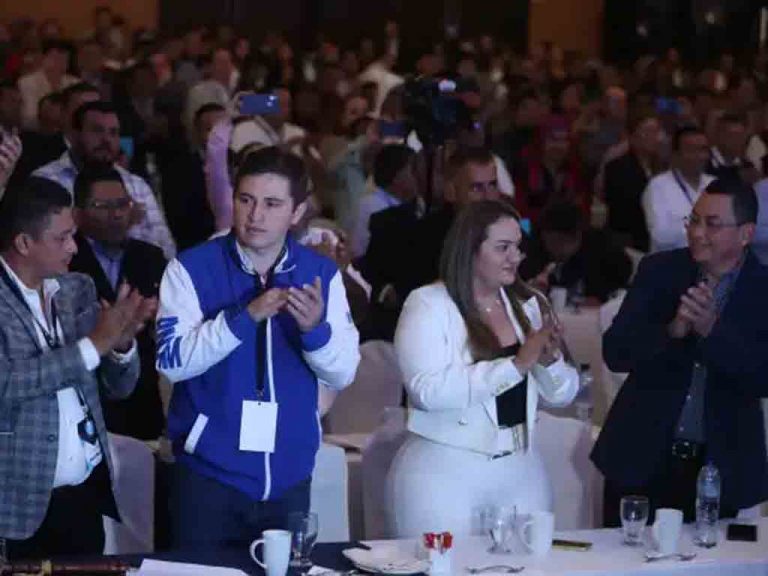“The commitment to see them in the face, to give them our word is still valid and will continue for the two years of this administration,” said the young mayor after the overwhelming victory.
In his speech, he called for unity among the 340 mayors and assured that it is necessary to reform the Purchasing and Contracting Law to make it “transparent and fast.”
“We cannot apply the same regulations to the municipality as to a large ministry,” declared Siero.
He considered that the regulation of Development Councils by funds that go to a common pool is creating a problem for them.
“We have to guarantee that all municipalities receive the amounts that correspond to them, as established in the Political Constitution of the Republic,” he stressed.
He stated that to get to this election without any setbacks “we went to visit all the mayors.” “That is why we achieved these consensuses. We did not go to the traditional ANAM campaign,” explained the official.
He stated that “it was an honor that President Arévalo expressed his support for this form, I think it says a lot for him.”
“This demonstrates the intention of wanting to work hand in hand with the mayors,” stated the new ANAM leader.
His slate was also made up of mayors Elvis Gilberto Tello, Pedro Juan Solos, Carlos Roberto Marroquín, Clemente Federico Betancourt, José Obdulio Pinto, Edilma Navarijo, Carlos Gustavo Pérez and Mayor David Portillo.
They sought to direct the Anam Juan Carlos Pellecer, mayor of the capital municipality of San Juan Satepéquez; and from El Jícaro, El Progreso, Francisco Mejía, who was seeking re-election.
Both Siero and the latter agreed on the need to maintain unity among the council leaders and emphasized that this process is not about “sides.”
Mejía decided before the vote to withdraw his candidacy to support the single slate and argued that he was betting on the “union of municipalism.”
However, a Pellecier without first registering later announced the presentation of an amparo before the Constitutional Court (CC) to stop the ANAM election.
He expressed his disagreement with the intention to present a single return, considering it undemocratic.
Furthermore, he criticized that one day before the election the mayors met with the country’s head of state, Bernardo Arévalo, which he described as an attempt to interfere in the voting.
In his meeting the day before, the president proposed collaboration with each of the municipal mayors and working together with the organization that represents them, due to its strategic importance, he specified.
ef/oda/znc










